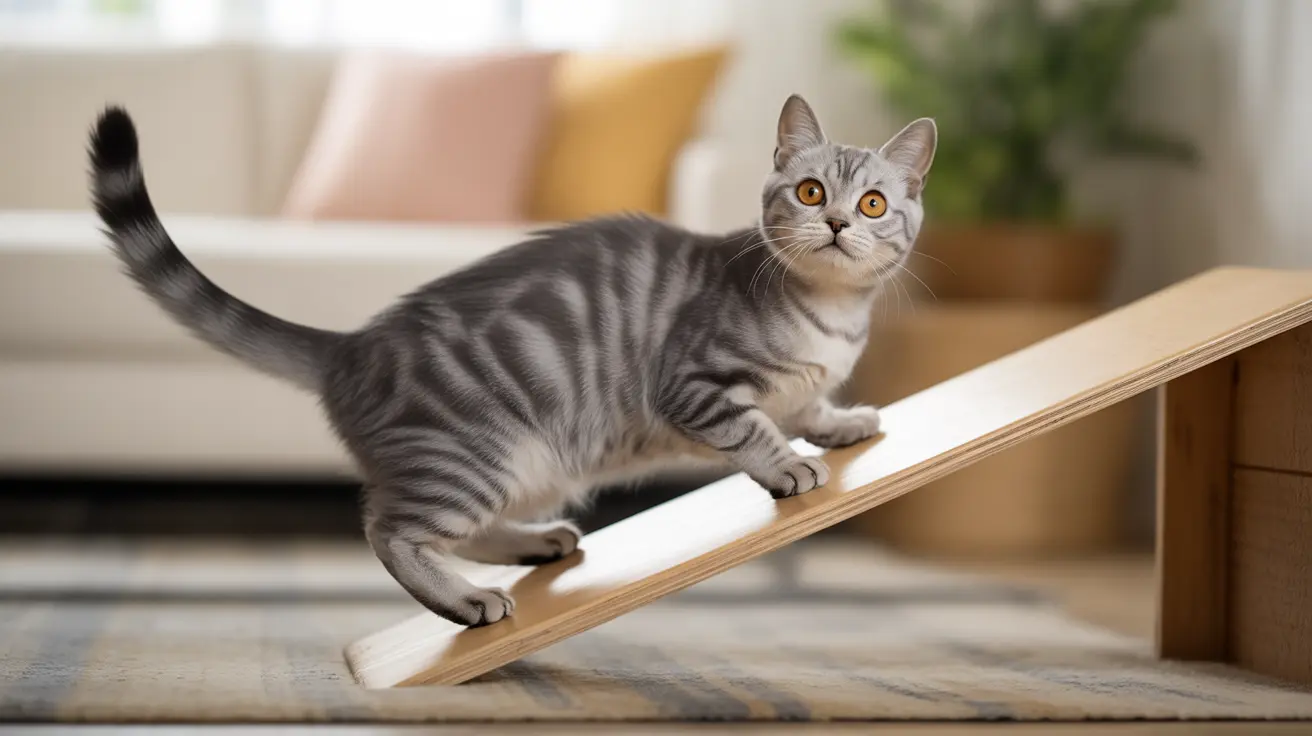Introduction
Wondering about Munchkin cat lifespan? These charming felines, known for their distinctive short legs and playful personalities, can live between 12 to 15 years with proper care and attention. Despite concerns about their unique genetic mutation, research shows that Munchkins enjoy lifespans comparable to many other domestic cat breeds.
Understanding the factors that influence a Munchkin cat's longevity is crucial for providing them with the best possible care. Let's explore everything you need to know about these beloved pets and how to help them live their fullest, healthiest lives.
Understanding the Munchkin Cat Breed
Munchkin cats first gained recognition in the 1940s, though organized breeding didn't begin until the 1980s. Their characteristic short legs result from a naturally occurring genetic mutation that's inherited in an autosomal dominant pattern. Despite initial controversy, these cats have proven to be robust and healthy when bred responsibly.
These medium-sized cats typically weigh between 5-9 pounds and maintain their playful, kitten-like energy well into adulthood. Their unique body structure doesn't significantly impact their agility or quality of life when properly cared for.
Health Factors Affecting Lifespan
Several key factors influence how long a Munchkin cat will live:
Genetic Considerations
Responsible breeding practices are crucial for Munchkin health. Only one parent should carry the short-leg gene, as breeding two Munchkin cats together can result in fatal genetic conditions. Reputable breeders test for common genetic disorders to ensure healthier offspring.
Common Health Concerns
While generally healthy, Munchkins may face certain health challenges:
- Osteoarthritis and joint problems
- Potential spinal issues
- Factor XII Deficiency (a minor clotting disorder)
- Increased risk of obesity-related complications
Maximizing Your Munchkin's Lifespan
Diet and Weight Management
Maintaining a healthy weight is crucial for Munchkin cats. Their shorter legs make them more susceptible to joint stress, so obesity prevention through proper nutrition and portion control is essential. Feed high-quality cat food appropriate for their age and activity level.
Exercise and Environmental Enrichment
Despite their short legs, Munchkins need regular exercise and mental stimulation:
- Provide interactive toys and puzzle feeders
- Create safe climbing opportunities with ramps or steps
- Engage in daily play sessions
- Set up scratching posts and cat trees at accessible heights
Regular Veterinary Care
Scheduled check-ups help catch potential health issues early:
- Annual wellness exams
- Regular vaccinations
- Dental care
- Weight monitoring
- Joint health assessments
Living Environment and Care Tips
Munchkins adapt well to indoor living, making them excellent apartment pets. Create a safe environment by:
- Installing ramps or steps to favorite perches
- Maintaining consistent room temperatures
- Providing soft bedding to protect joints
- Keeping litter boxes easily accessible
- Establishing quiet spaces for rest and relaxation
Frequently Asked Questions
What is the average lifespan of a Munchkin cat compared to other cat breeds?
Munchkin cats typically live 12-15 years, which is comparable to many other domestic cat breeds. Some indoor cats may even live longer with excellent care.
How do genetics and breeding practices affect the health and lifespan of Munchkin cats?
Proper breeding practices are crucial for Munchkin health. Only one parent should carry the short-leg gene to prevent fatal genetic conditions. Responsible breeding from tested parents helps ensure healthier, longer-lived offspring.
What common health issues should Munchkin cat owners watch for to help extend their pet's life?
Monitor for signs of joint problems, osteoarthritis, and obesity-related issues. Regular vet check-ups can help detect and address these concerns early.
What are the best care practices to maximize the lifespan of a Munchkin cat?
Maintain a healthy diet, provide regular exercise, ensure routine veterinary care, and create a safe living environment with appropriate climbing aids and rest areas.
How does obesity impact the longevity and joint health of Munchkin cats?
Obesity can significantly impact a Munchkin's joint health and overall lifespan due to their unique body structure. Extra weight puts additional stress on their shorter legs and joints, potentially leading to early onset arthritis and reduced mobility.
Conclusion
With proper care, nutrition, and regular veterinary attention, Munchkin cats can live long, healthy lives full of joy and companionship. While their unique genetic makeup requires special consideration, these beloved pets prove that good things truly do come in small packages.
By understanding and addressing their specific needs, owners can help ensure their Munchkin cats reach their full lifespan potential while maintaining an excellent quality of life throughout their years.






